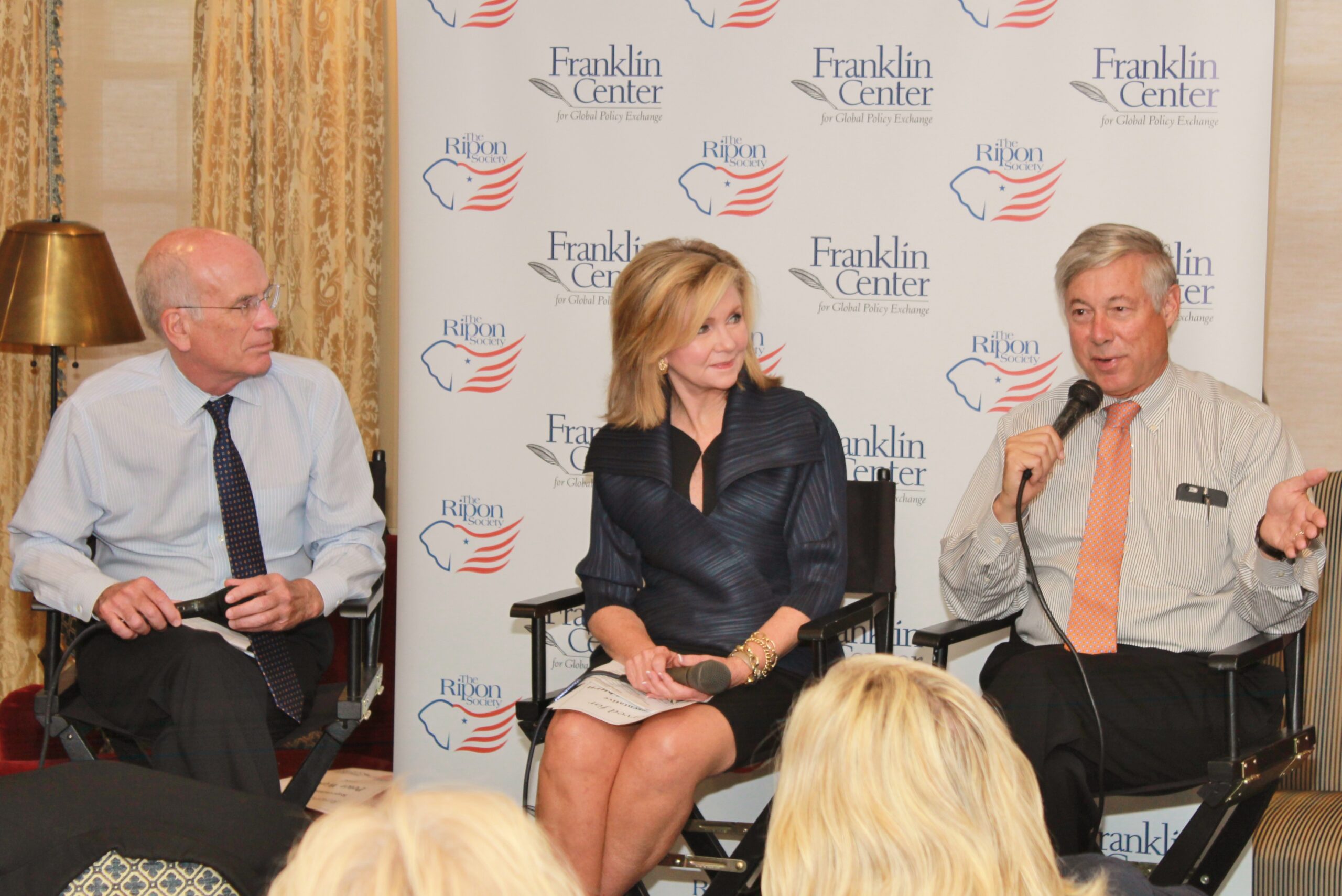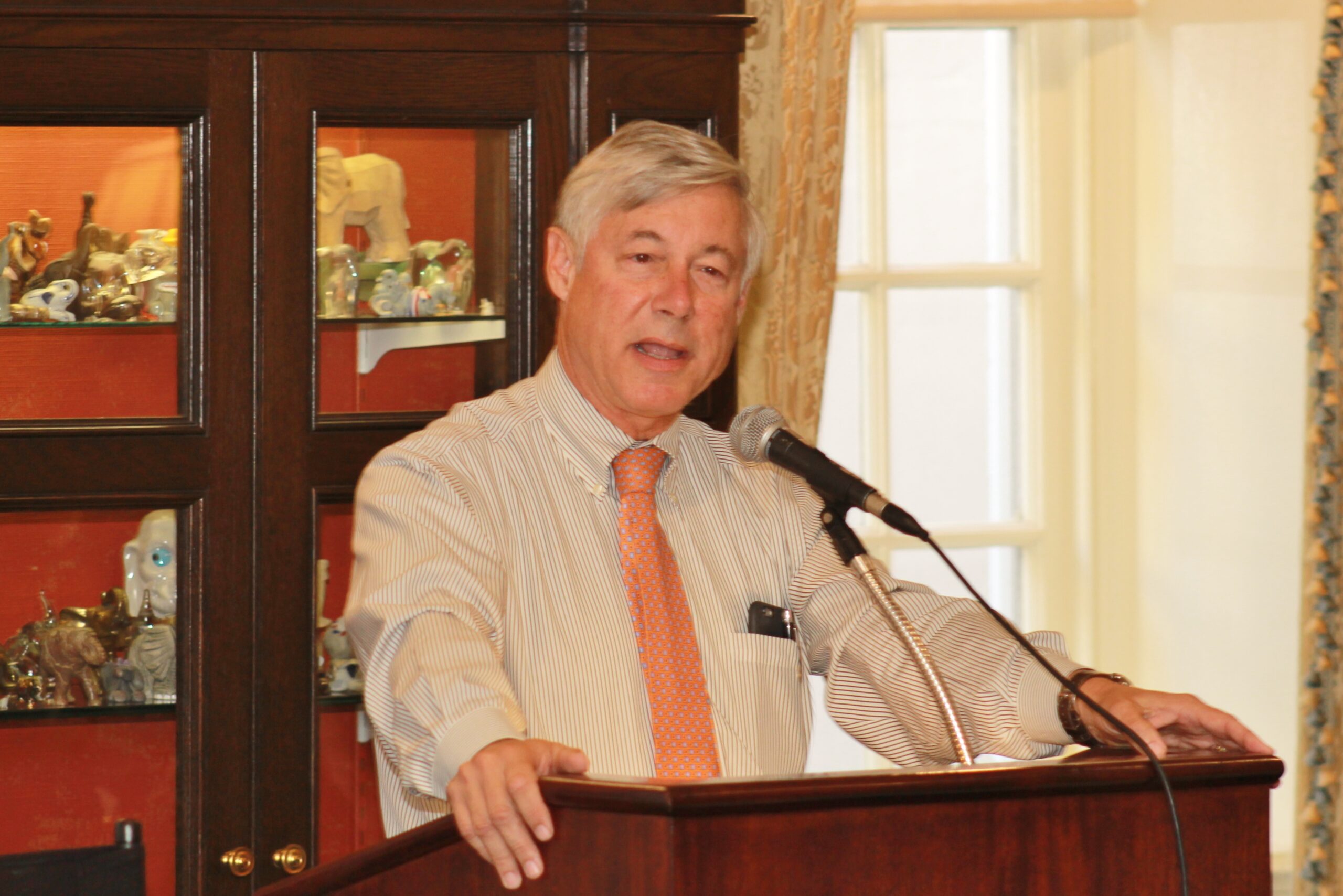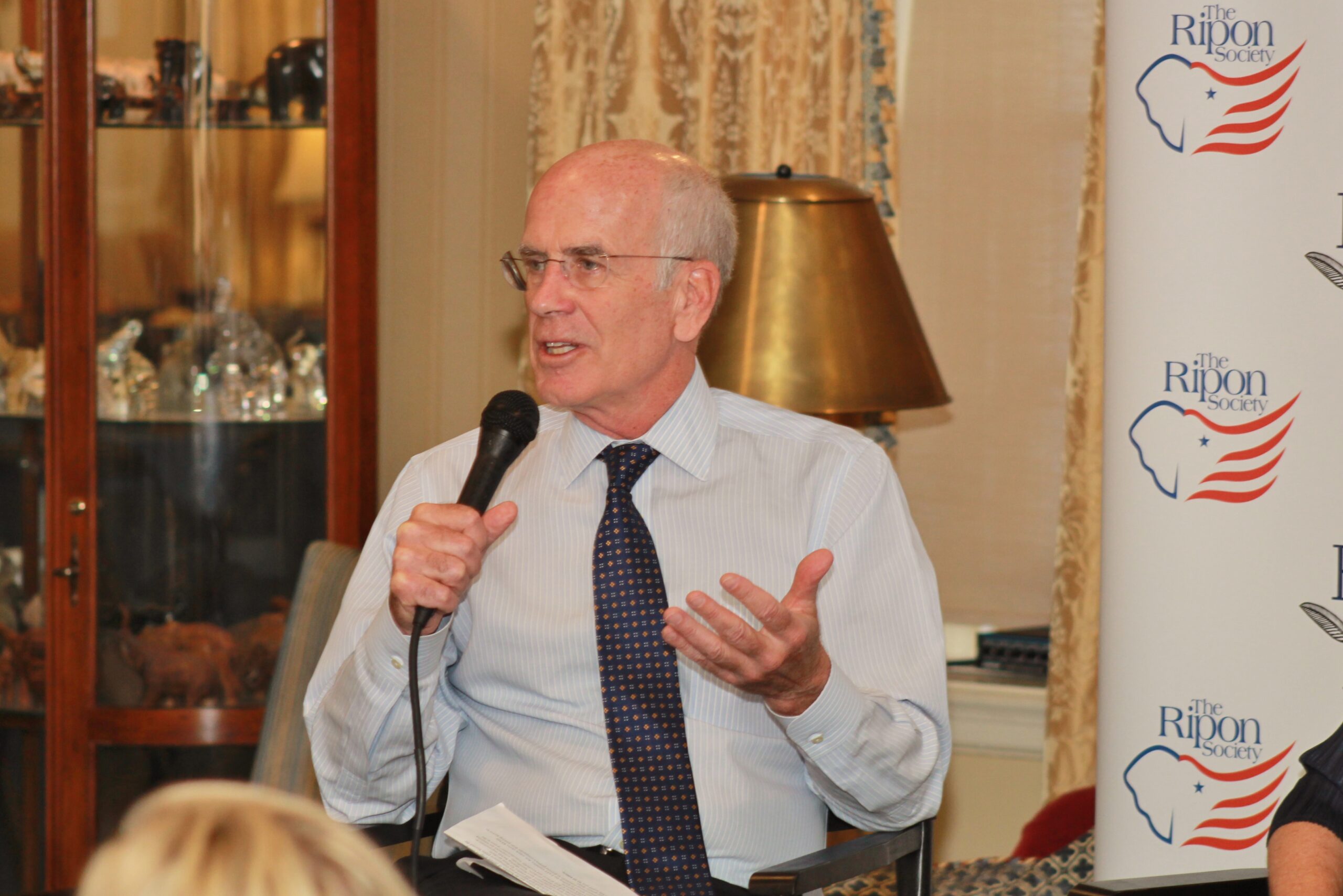 Upton, Blackburn & Welch Tout Benefits of 21st Century Cures Act and its Prospects for Passage this Fall
Upton, Blackburn & Welch Tout Benefits of 21st Century Cures Act and its Prospects for Passage this Fall
WASHINGTON, DC – Energy and Commerce Committee Chairman Fred Upton (MI-6) appeared before a breakfast meeting of The Ripon Society yesterday morning to deliver an update on the 21st Century Cures Act, a landmark measure that would accelerate the discovery, development and delivery of life saving and life improving drugs and therapies in the U.S.
Upton is the author and architect of this bipartisan measure, which was overwhelmingly approved by the House of Representatives by a vote of 344-77 this past July and is awaiting consideration in the U.S. Senate. He was joined at the breakfast by U.S. Reps. Marsha Blackburn (R/TN-6) and Peter Welch (D/VT-AL), two members of the Energy & Commerce Committee who, Upton said, have played key roles in helping to pass the 21st Century Cures Act through the House.
“This has been a multi-year effort with lots of meetings all over the country,” the Chairman stated. “Just about every Member on both sides of the aisle has hosted events in their districts, attended by me and others. And whether it’s reaching out to universities, industry, or NIH, it’s been an amazing process.

“We all know how disease impacts everybody’s lives. For me, my wife has lupus. My Dad has diabetes. The device that he wears – I talked to him this morning – that device he wears saves his life literally every single day. He’s 92- years old. My Mom is a cancer survivor. And my uncle who lived across the street died of Parkinson’s. All of us have those same stories. And what we can do to advance the science to find cures can really impact not only America, but the rest of the world, as well.”
Introduced by Upton in July 2015, the 21st Century Cures Act would achieve a number of key objectives. These objectives include:
- Removing barriers to increased research collaboration;
- Incorporating the patient perspective into the drug development and regulatory review process;
- Measuring success and identifying diseases earlier through personalized medicine;
- Modernizing clinical trials;
- Removing regulatory uncertainty for the development of new medical apps;
- Providing new incentives for the development of drugs for rare diseases;
- Helping the entire biomedical ecosystem coordinate more efficiently to find faster cures;
- Investing in 21st century science and next generation investigators;
- Helping to keep and create jobs here at home; and,
- Reducing the deficit by over $500 million.
“We really see the bill advancing and getting to the President’s desk for his signature before the end of the year,” Upton observed. “It’ll be a great hallmark success. As Mitch McConnell said the other night, it may be the most important piece of legislation this Congress undertakes.”
Blackburn shared Upton’s optimism, and praised his work on the measure and his efforts to build the bipartisan coalition that has advanced the bill this far.
“Chairman Upton has done a tremendous job shepherding this through the committee,” she stated, adding that he allowed “the committee to do its work in work sessions and come to bipartisan agreement before we got into the markup process. I think that is significant and important to what we have done.”

Blackburn also had words of praise for NIH Director Dr. Francis Collins and his team at the National Institutes of Health for the important work they do and their role in building support and awareness for the legislation.
“They’ve been so helpful in working with us around the country. Senator Alexander and I worked with Dr. Collins and with researchers at a symposium at Vanderbilt, and it was just amazingly helpful. And that’s the approach we should take as we work on legislation and items that are going to be significant. I was so pleased to see the response that came from that, and the buy-in and the ownership that some of the medical community and the researchers took from the program.”
Welch echoed Blackburn’s remarks.
“One of the significant achievements in 21st Century Cures is that there was a mutual commitment to NIH,” he stated. “And I want to thank Frank Pallone and Diana DeGette, who have really been leaders on our side of this. We made a commitment to not only work with NIH and get their scientific research budget boosted, but to also try to streamline some of the regulations. You know, no regulations is a real bad thing, and excessive regulations is a real bad thing.”

“I think the NIH budget is really important because that keeps hope alive for a lot of folks who are suffering from diseases that are rare or from cancer that is common. And it really reflects, I think, a political skill in that you can only get something done that’s going to be meaningful if somehow, someway you can get both sides on board. So I want to thank Fred for his great leadership in that regard on the Committee.”
To view the remarks of Chairman Upton and Reps. Blackburn and Welch before The Ripon Society yesterday morning, please click on the link below:
The Ripon Society is a public policy organization that was founded in 1962 and takes its name from the town where the Republican Party was born in 1854 – Ripon, Wisconsin. One of the main goals of The Ripon Society is to promote the ideas and principles that have made America great and contributed to the GOP’s success. These ideas include keeping our nation secure, keeping taxes low and having a federal government that is smaller, smarter and more accountable to the people.



